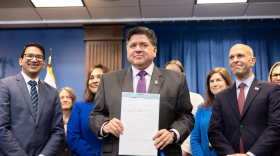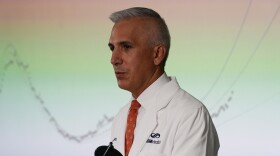-
Researchers have said this year’s vaccine may be mismatched with the currently circulating flu type known as subclade K.
-
The move marks the second time that state public health officials have broken away from guidance under U.S. Health Secretary Robert F. Kennedy Jr., a longtime critic of vaccines.
-
The new law will allow the state to publish guidelines that differ from the CDC.
-
Gov. JB Pritzker issued an executive order in response to shakeups at Centers for Disease Control and Prevention.
-
In a change from previous federal recommendations, the U.S. Food and Drug Administration has approved this year's shots only for older people and those with underlying health conditions.
-
A community needs a vaccination rate of at least 95% to be adequately protected from measles outbreaks. In Missouri, the rate of vaccinated kindergarteners stands at 90%
-
St. Louis Public Radio’s Sarah Fentems tells us what you need to know about measles and how to protect yourself and your loved ones.
-
Measles can take hold when vaccination rates fall below 95%. Health workers say pockets of the state are at risk as immunization rates drop.
-
A person from out of state with measles reportedly visited the St. Louis Aquarium on April 30, according to the Missouri Department of Health and Senior Services.
-
State health officials said the pediatric patient tested positive for measles and that the case was a “associated with international travel.”
Play Live Radio
Next Up:
0:00
0:00
Available On Air Stations









